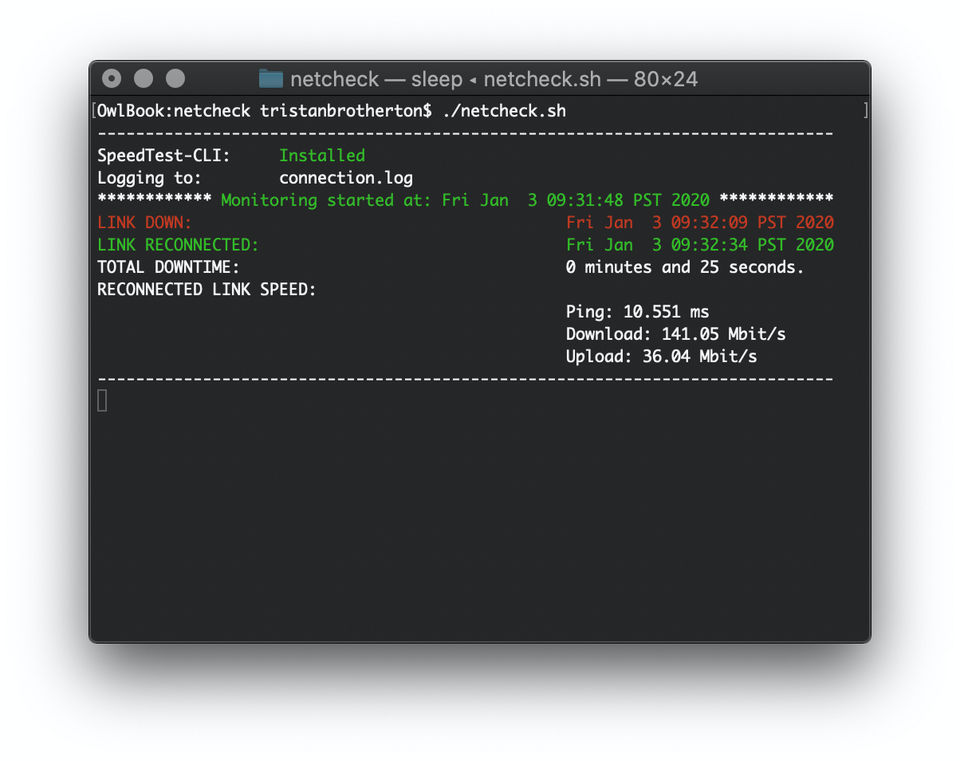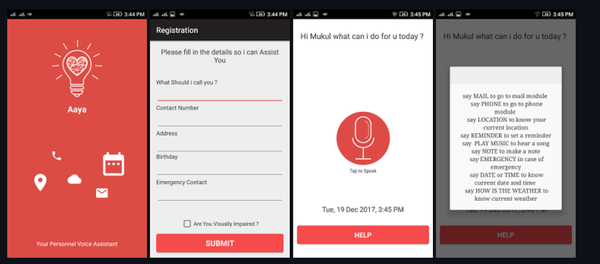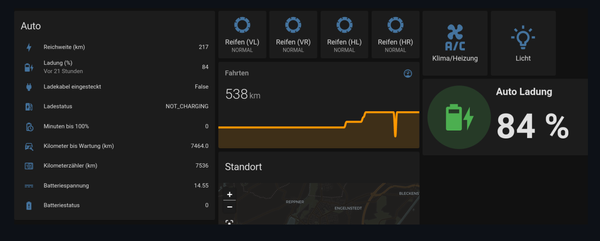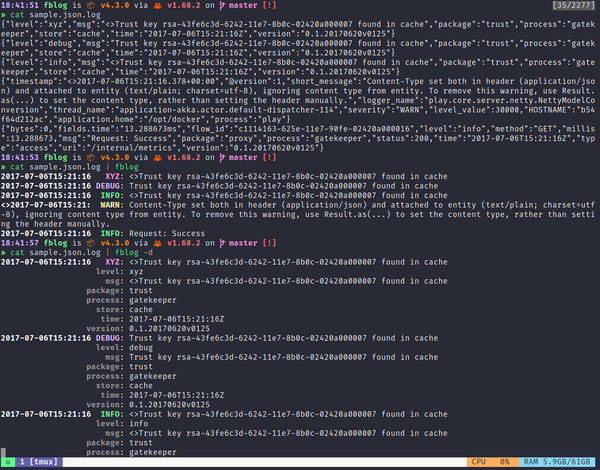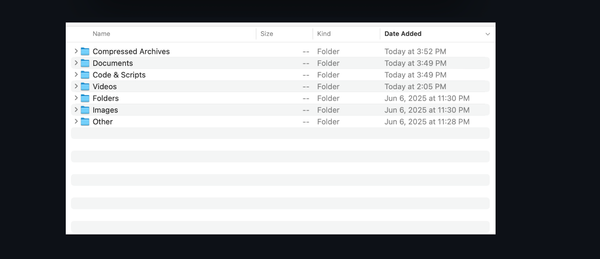Best Open Source Ping Tools in 2025m 23 Free Network & Domain Testing Solutions
Table of Content
If you're a developer, sysadmin, or just someone who owns a website, pinging your site isn't just a technical curiosity, it's a critical diagnostic tool. But as we move into 2025, the tools and methods for doing this are evolving, and some of the old ones are starting to show their age, or worse, becoming obsolete.
So what does "pinging" actually mean? At its core, pinging a website involves sending a small packet of data to a server and measuring how long it takes to respond. This helps determine if the site is online, how responsive it is, and can even help identify network issues along the way.
For decades, command-line tools like ping, traceroute, and mtr have been the go-to solutions across Windows, Linux, and macOS platforms. They’re simple, fast, and built right into the OS. But as networks grow more complex, cloud services abstract away infrastructure, and security layers like firewalls and DDoS protection become standard, these traditional tools are increasingly less reliable or informative.
So Why Should You Care?
Simple answer: Because uptime matters, Latency matters. Diagnosing performance issues before your users do also matters.
If your site goes down and you don’t know about it until Twitter blows up, you’ve already lost trust, customers, and possibly revenue.
Moreover, as browsers evolve and developers shift toward decentralized hosting models (like IPFS, Web3, etc.), the ability to test connectivity and responsiveness becomes even more nuanced. Traditional ping tools won’t cut it anymore.
The Old Tools Are Showing Their Age
Let’s take a look at the classics:
- Windows :
ping.exe,tracert.exe - Linux/macOS :
ping,traceroute,mtr
These tools work well in controlled environments, but they often fail when trying to diagnose modern web services protected by CDNs like Cloudflare, Akamai, or AWS Shield. Many services now block ICMP traffic (used by ping) entirely, rendering these commands useless for checking uptime or latency.
And while there are alternatives like HTTP-based ping tools or third-party monitoring services, many users still rely on outdated CLI commands that give incomplete or misleading results.
Understanding the Difference Between Ping and Uptime1
When it comes to monitoring website performance, two commonly used terms are "ping" and "uptime." While both relate to a site's availability and responsiveness, they serve different purposes.
Ping measures how quickly data travels between your device and a server. It sends a small packet of data and records the time it takes to return, known as latency. A lower ping time means faster communication.
Uptime, on the other hand, refers to the percentage of time a website or server is fully operational and accessible. It focuses on long-term reliability rather than instantaneous response speed.
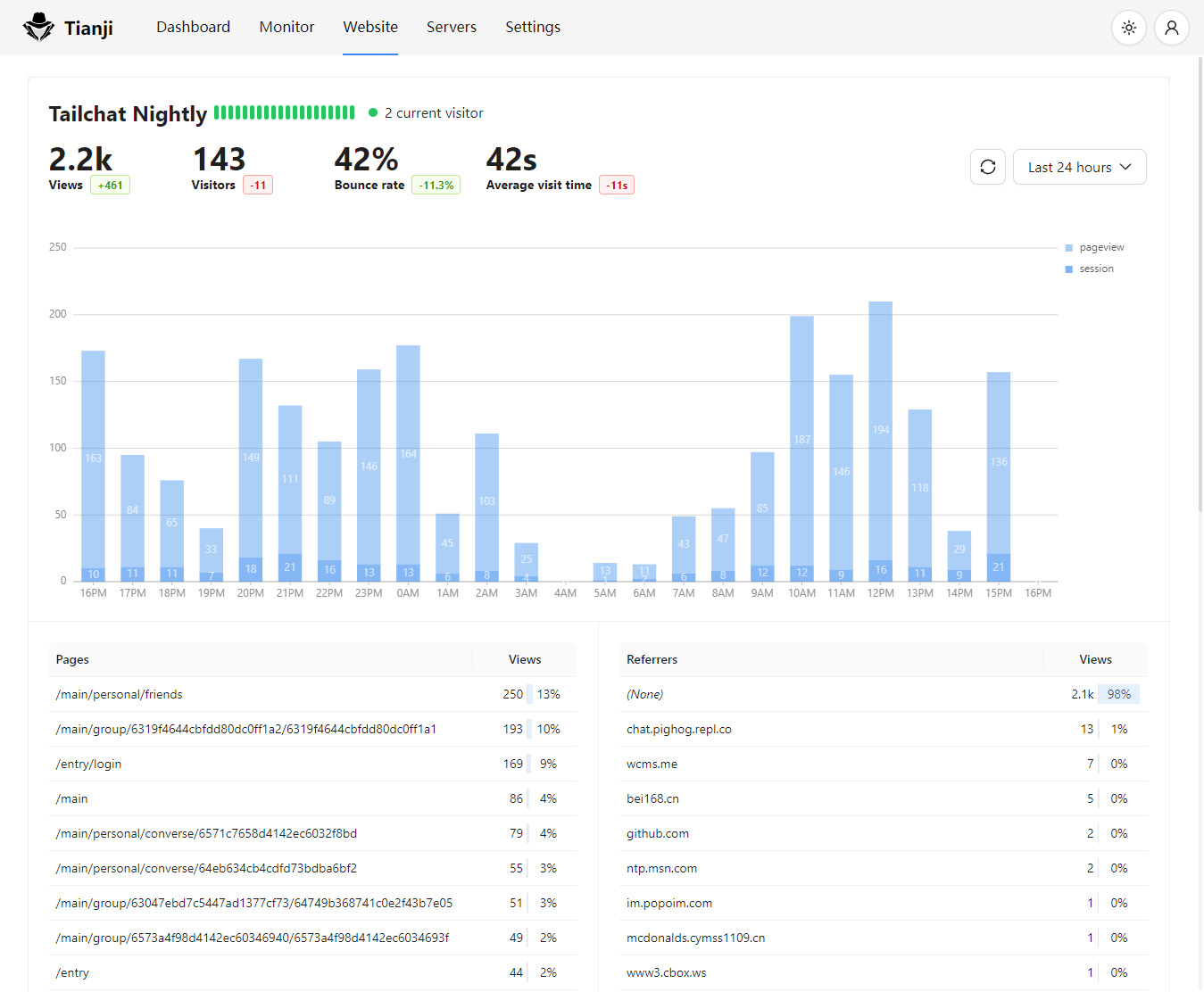
Here’s a quick breakdown:
| Aspect | Ping | Uptime |
|---|---|---|
| Measures | Response time (latency) | Availability over time |
| Focus | Speed of connection | Reliability and consistency |
| Use Case | Network troubleshooting | Monitoring service health |
| Time Frame | Real-time or short intervals | Long-term tracking (hours/days/months) |
| Tells You If | The server is responding quickly | The server is online and functional |
When to Use a Ping Tool vs. Uptime Monitor
A ping tool is best for checking real-time network performance. Use it when you're troubleshooting connectivity issues, experiencing slow load times, or testing server responsiveness.
An uptime monitor, however, is ideal for tracking whether your website or service remains consistently available over extended periods. This is crucial for businesses that rely on constant access, like e-commerce sites or SaaS platforms.
In short:
- Use a ping tool for diagnosing network speed and latency.
- Use uptime monitoring to ensure your website stays online and accessible 24/7.
Open-source Alternatives Are Rising Up
1- Pinging.net
Pinging.net is a fast, lightweight, and reliable browser-based tool that helps users determine if their internet connection is working or if a website is down. It performs multiple real-time tests, including web ping, HTTP, DNS, and browser connectivity checks, to diagnose network issues instantly.
The app is designed with simplicity in mind, it provides easy-to-understand results and visualizations like latency graphs and packet loss indicators. Built with Rust backend and TypeScript frontend, it's optimized for speed, privacy, and self-hosting.
It is also easy to use for non-technical users and professionals alike who want quick insight into their connection health, all without installing any software.
Pinging.net's Features
- Real-time web ping every second
- HTTP connectivity test every 30 seconds
- DNS resolution test every 30 seconds
- Browser offline status monitoring
- Instant load test to check internet on page open
- Visual graphs for latency and packet loss
- No plugins or installs needed
- Easy-to-understand explanations
- Can be self-hosted on private clouds
- Fast and lightweight for all connections
- Built with Rust (backend) and TypeScript (frontend)
- Smooth updates with DNS-based deployment
2- gping
gping is a modern command-line tool that brings visual clarity to network diagnostics by turning standard ping results into live-updating graphs right in your terminal. Inspired by the classic ping utility, gping adds real-time latency visualization across multiple hosts or custom commands, making it easier than ever to monitor performance and troubleshoot connectivity issues.
Built with cross-platform support in mind, it runs seamlessly on Windows, macOS, and Linux.
- Live Latency Graphs: Visualize ping times in real time with easy-to-read graphs directly in your terminal.
- Multi-Host Monitoring: Track latency from multiple hosts at once — perfect for comparing server health or CDN performance.
- Command Execution Graphing: Use
--cmdto graph execution times of custom shell commands (e.g., API calls, script runtimes). - Customizable Colors: Personalize graph colors per host or command to keep your output clean and easy to read.
- Cross-Platform Support: Works natively on Windows, macOS, and Linux — no extra dependencies needed.
- Simple & Lightweight: Designed for minimal setup and fast startup — ideal for developers, sysadmins, and CLI lovers.
- Open Source & Actively Maintained
3- ttyplot

ttyplot is a free realtime plotting utility for text mode consoles and terminals with data input from stdin / pipe, It takes data from standard input / unix pipeline, most commonly some tool like ping, snmpget, netstat, ip link, ifconfig, sar, vmstat, etc.
It supports rate calculation for counters and up to two graphs on a single display using reverse video for second line, for example snmpget, ip link, rrdtool and more.
4- Trippy
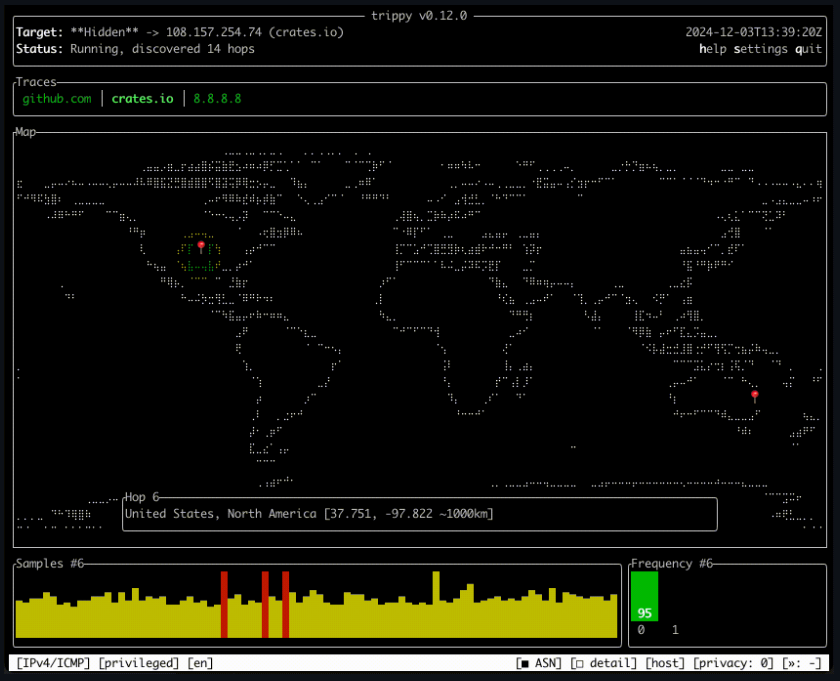
Trippy is a free and open-source that combines the functionality of traceroute and ping and is designed to assist with the analysis of networking issues.
5- Pingtunnel
Pingtunnel is a tool that send TCP/UDP traffic over ICMP.
6- myLG
myLG is an open source software utility which combines the functions of the different network probes in one network diagnostic tool.
Features
- Popular looking glasses (ping/trace/bgp): Telia, Level3, NTT, Cogent, KPN
- More than 200 countries DNS Lookup information
- Local ping and real-time trace route
- Packet analyzer - TCP/IP and other packets
- Quick NMS (network management system)
- Local HTTP/ HTTPS ping (GET, POST, HEAD)
- RIPE information (ASN, IP/CIDR)
- PeeringDB information
- Port scanning
- Network LAN Discovery
- Internet Speed Test
- Web dashboard
- Configurable options
- Direct access to commands from shell
- Support vi and emacs mode, almost all basic features
- CLI auto complete and history features
7- netscanner
netscanner is a free and open-source Network scanner & diagnostic tool.
netscanner's Features
- List HW Interfaces
- Switching active Interface for scanning & packet-dumping
- WiFi networks scanning
- WiFi signals strength (with charts)
- (IPv4) Pinging CIDR with hostname, oui & mac address
- (IPv4) Packetdump (TCP, UDP, ICMP, ARP)
- (IPv6) Packetdump (ICMP6)
- start/pause packetdump
- scanning open ports (TCP)
- packet logs filter
- export scanned ips, ports, packets into csv
- traffic counting + DNS records
8- prettyping
prettyping is a wrapper around the standard ping tool with the objective of making the output prettier, more colorful, more compact, and easier to read.
prettyping runs the standard ping in the background and parses its output, showing the ping responses in a graphical way at the terminal (by using colors and Unicode characters).
prettyping is written in bash and awk, and is reported to work on many different systems (Linux, Mac OS X, BSD…), as well as running on different versions of awk (gawk, mawk, nawk, busybox awk).
9- fping
fping is a program to send ICMP echo probes to network hosts, similar to ping, but much better performing when pinging multiple hosts. fping has a long long story: Roland Schemers did publish a first version of it in 1992 and it has established itself since then as a standard tool.
10- dstp
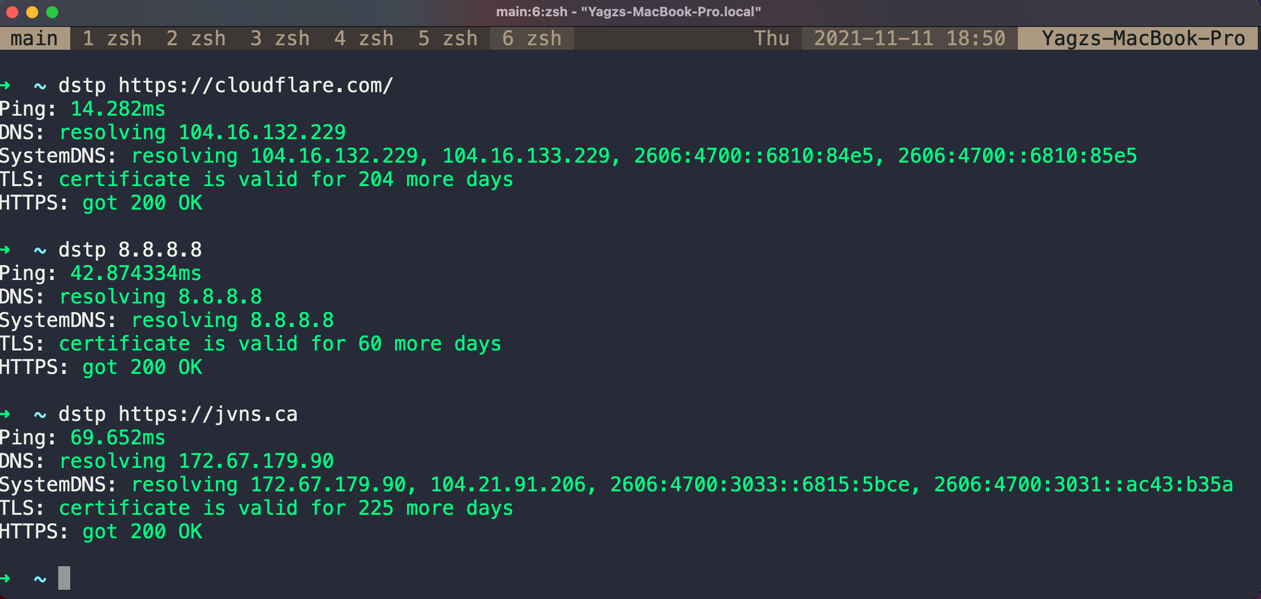
dstp, run common networking tests against your site.
11- TCPING
TCPING is a free and open-source cross-platform ping program using TCP instead of ICMP, inspired by Linux's ping utility.
Features
- An alternative to
pingin environments thatICMPis blocked. - Outputs information in colored, plain, JSON, CSV and sqlite3 formats.
- Monitor and audit your or your peers network latency, packet loss, and connection quality.
- Let's you specify the source interface, timeout, and interval between probes.
- Supports both
IPv4orIPv6and lets you enforce using either. - Prints total connection statistics by pressing the
Enterkey, without stopping the program. - Reports the longest encountered
downtimeanduptimeduration and time. - Retries hostname resolution after a predetermined number of probe failures by using the
-rflag . Suitable to test yourDNSload balancing or Global Server Load Balancer(GSLB). - uses different
TCP sequence numberingfor successful and unsuccessful probes to infer the total failed or successful probes at a glance.
12- Ip-Attack
Auto IP or Domain Attack Tool!
Features
- Cool UI
- Category Wise Tools
- Quick Linux Commands
- Basic to Advance Guide
- Powerful Termux Quiz
- AI Script Maker - Mr.Robot AI
- Programming Tutorials with Termux (included all language)
- 200+ Working Termux Tools
- Install any tool in termux with single commands.
- and much more..
13- HackerTarget ToolKit
HackerTarget Toolkit leverages open-source intelligence and security tools to map your organization’s external attack surface. It is ideal for identifying vulnerabilities in real-time, this Linux-based Python tool integrates with external APIs to help security teams uncover hidden risks and strengthen their network defenses effectively.
Features
- Traceroute
- Ping Test
- DNS Lookup
- Reverse DNS
- Find DNS Host
- Find Shared DNS
- Zone Transfer
- Whois Lookup
- IP Location Lookup
- Reverse IP Lookup
- TCP Port Scan
- Subnet Lookup
- HTTP Header Check
- Extract Page Links
14- pingtop
This simple tool enables you to ping multiple servers and show results in a top-like terminal UI.
15- InternetTest
InternetTest is a modern connection utility for Windows. It can locate IP addresses, send ping request, recover your WiFi passwords and more!
16- Monitorr
"Monitorr” is a self-hosted PHP web app that monitors the status of local and remote network services, websites, and applications.
- Live monitoring (with pause option)
- Self-hosted
- Responsive design for mobile
- Monitor any app/service on any domain (Curl + fsockopen fallback)
- Enable/disable hotlinking per service
- Service ping response time display (NEW)
- Host system resources display (CPU, MEM, HD, PING, Uptime) (UPDATED)
- Integrated settings page with authentication
- Customizable system threshold colors
- Custom CSS tool (NEW)
- Server date/time display (UPDATED)
- Web UI update tool with branch switching and notifications
- Minimal UI mode for iFrame use
17- deadman
Deadman is a simple host status monitor using ICMP ping. Designed for temporary networks like events, it offers lightweight, no-frills uptime checks.
18- Pingnoo
Pingnoo is an open-source combined traceroute and ping application for analysing network connections. It runs under Windows, macOS and Linux.
Features
- Combined Ping & Traceroute: Perform both ICMP ping and full traceroute analysis in one interface.
- Cross-Platform Support: Available for Windows (32/64-bit), macOS (Intel & Apple Silicon), and Linux (AppImage, DEB, RPM, AUR).
- Live Graphs & Visualizations: View real-time latency graphs and hop-by-hop route visualizations.
- Modular Architecture: Built using plugins for easy extension and third-party development.
- Command-Line Interface (CLI) Tools Included: Supports integration into automation scripts and DevOps pipelines.
- Custom Themes & UI Layouts: Includes ribbon-style UI with customizable layouts and themes.
- Support for Multiple Engines: Choose between different ping engines including system-based or raw socket implementations.
- Linux RAW Socket Support: Advanced ICMP support via
setcapfor low-level network diagnostics. - Unit Testing & Debugging Tools: Comes with debugging support via Valgrind (Linux), Deleaker (Windows), and unit test frameworks.
19- Netcheck
Netcheck is a shell script that monitors internet connectivity, logs downtime with timestamps and duration, and records reconnect speed. Includes an optional web interface for remote log access, ideal for tracking network stability over time.
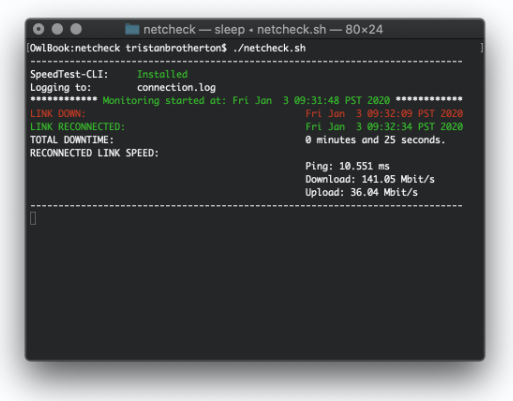
20- PingoMeter (Windows)
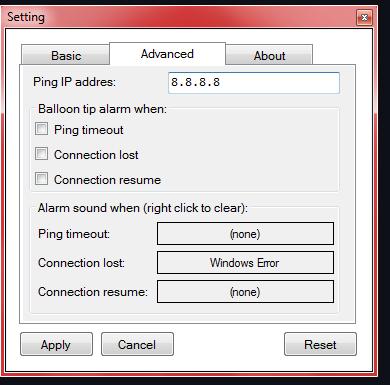
PingoMeter is a small program that show your ping in Windows system tray (in graph or numbers).
21- Nmap
Nmap (Network Mapper) is a free and open-source utility for network discovery, port scanning, and security auditing. It's widely used by system administrators, penetration testers, and cybersecurity professionals to:
- Discover active hosts on a network
- Identify open ports and running services
- Determine operating systems and software versions
- Map network structure
- Detect firewalls, filters, and other network defenses
It works by sending specially crafted packets to target hosts and analyzing the responses — often going far beyond what traditional tools like ping or traceroute can do.
It can be used to ping websites with the following command:
nmap -sn example.com23- PingInfoView (Windows)
PingInfoView is a simple, portable tool designed for network administrators and IT professionals to monitor connectivity efficiently. It allows users to ping multiple IP addresses or hostnames simultaneously, providing detailed data like response times, success rates, and failures in a single interface.
Final Thoughts
As we move into 2025, pinging a website should no longer be a game of guesswork or reliance on decades-old tools. It should be precise, actionable, and integrated into our daily workflows, whether you're a developer, a sysadmin, or just a curious user.

